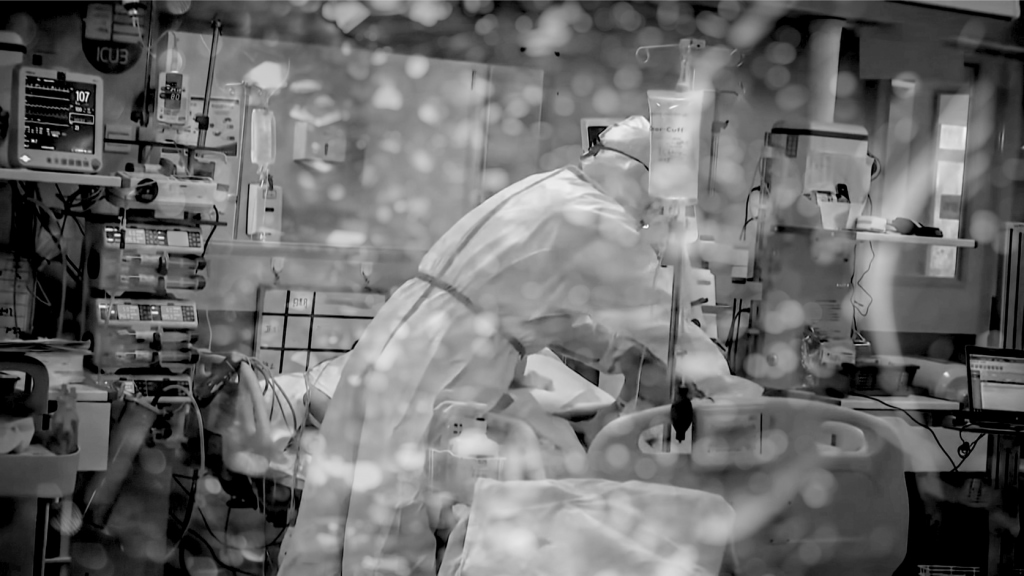It has been a little over a year since the first Covid-19 news reports were broadcasted in Japan. I remember quite vividly when reporters and specialists at the time spoke about a “new virus from China” that is spreading, but we “shouldn’t panic.” We all know what happened next. Japan had its first state of emergency last April, during which most people did everything they could to stay indoors. Shops were closed, cafes too, most companies that could afford it, encouraged their staff to work from home. At the time, most of us obliged because the prevailing sentiment was that if we all were just a bit patient, the virus would miraculously vanish.
And for a while, it looked like everyone’s efforts paid off. As the numbers of new infections got lower and lower in the summer, people gradually started to return to everyday life. The government relaxed too — it pushed the Go To Travel campaign and encouraged people to start traveling. It later launched the Go To Eat campaign too, encouraging people to dine out and spend more money outside, to keep the economy running. Meanwhile, medical experts looked at all that and vocally opposed it, saying that the situation would get out of control if we aren’t careful.
And it did. On New Year’s Eve, 2020, Tokyo reported a daily record-high of 1,337 new Covid cases, the first time the number surpassed 1,000. A week later, on January 7, the numbers had peaked at 2,447. On that same day, Prime Minister Yoshihide Suga declared a second state of emergency in Tokyo and its three neighboring prefectures, Kanagawa, Chiba and Saitama. On January 13, Suga expanded the state of emergency to seven additional prefectures: Tochigi, Osaka, Gifu, Aichi, Hyogo, Kyoto and Fukuoka. It was a move that finally took place — but it was too little too late.
Despite the second state of emergency, the rapidly surging numbers and the alarming messages that many medical experts in Japan have been passing on, however, Japan is struggling to understand why many people are indifferent about it. For many, life remains as usual — and, to be honest, they are not entirely to blame. Some members of the government continue dining out in groups, shops remain open, people are out and about. And there’s no real surprise here, as the government failed to provide proper financial compensation to businesses and individuals who are affected by the pandemic.
As a result, for many, Covid remains somewhat unreal, something we see on TV and fear, but naively believe it won’t happen to us.
So if reporting the daily statistics doesn’t seem to work, what does? Perhaps, one of the answers could be sharing real voices and stories.
Launched as an initiative by Nippon TV’s news program News Zero, the hashtag #KansenShitakaraTsutaetai (#感染したから伝えたい), which translates to, “What I’d like to share with everyone (after contracting Covid),” calls for former or current Covid-19 patients (or friends and relatives) to share their stories in order “to reduce the number of people suffering (because of the virus) in the same way.” The hashtag has been trending on Twitter since its launch earlier this year and the stories being shared remind us that “only once” is enough to contract the virus and that no one is immune to it.
Here are several of these stories.
#感染したから伝えたい
去年の秋、友人がコロナ感染しました。
家族全員にうつしてしまいました。
高齢の両親が重症化して入院しました。お母さんは回復しましたが、お父さんは亡くなってしまいました。
その日から「自分が父親を死なせた」という気持ちに苦しみながら毎日を生きていると言ってました— momo_ka (@momo_ka_mama) January 14, 2021
Translation: A friend of mine became infected with Covid last fall. Then her whole family got infected. The condition of her parents, both elderly, got worse and they had to be hospitalized. Her mother recovered, but her father passed away. From that day on, my friend told me that she is living with the thought that she killed his father.
#感染したから伝えたい
夫が先輩からの誘いを断れず会食
そこで感染し、1歳になりたての子供へ家庭内感染
初めての発熱がコロナ
一度PCR陰性だった私もその後発熱#後遺症 として嗅覚脱失、からの今は異臭症に悩まされている
全てがプラスチックの焼けたような臭い
食事をするのも作るのも苦痛— 亜鉛飲んでます@ひまわり (@yuina6002) January 14, 2021
Translation: My husband couldn’t decline a dinner offer by his superior at work, and so he went. He got infected during that dinner and brought the virus home to me and our 1-year-old child. Our child’s first fever was because of Covid. My first PCR test was negative, but a week later, I got high fever and I’m still living with long-term effects like smell loss, which recently changed into a strong smell syndrome. Everything smells like burned plastic. I can’t stand eating or cooking.
自宅と会社の往復で、外食も旅行もせずに会社帰りにスーパーに買い物に立ち寄るくらいでした。常時マスクをつけ、消毒などに気を付けていても感染しました。
「遊び歩いていた人が感染している」と批判されているような感覚がずっとつきまとっていて、辛いものがありました。#感染したから伝えたい— 陽性者の叫び(ホテル療養終了) (@yousei_sakebi) January 14, 2021
Translation: I was only commuting from home to work. I haven’t been dining out, nor traveling. I only went out to the supermarket. I always wore a mask, always sanitized my hands. I was very careful. And yet, I got infected. It was tough thinking that everyone looked at me as someone who was “playing around.”
まずは節々の痛さ、高熱。
次に咳と下痢。嗅覚異常。
7キロ減。
自己嫌悪に陥る。
そういう目で見られてるような気がする。
去年の12月中旬くらいで
保健所はパンク寸前な感じでした。— 祇園木﨑 (@giontarokizaki) January 18, 2021
Translation: It started with joint pain, then high fever. Then came the cough and diarrhea. Then the loss of smell. I lost 7 kg. Then I started feeling really low about myself. I started thinking that everyone looks at me “that way.” Last mid-December, the public health center was on the verge of collapse.
#感染したから伝えたい
経営者が倦怠感発熱の症状があるのを隠し仕事に来ていました。その後検査で陽性。そして職場半数の従業員が感染しました。経営者の息子から父は体調悪い中仕事頑張っていました。と言われました。余りにも無責任な言葉に愕然としました。— mika (@mika18292673) January 14, 2021
Translation: Our CEO hid from everyone that he had fever and felt extreme fatigue, and kept coming to work. He later took the PCR test and it came out positive. Half of our staff got infected. The boss’ son praised him for “working hard while being sick.” How irresponsible! I was really shocked to hear this.
#感染したから伝えたい
昨年の6月頃、弟が新型コロナに感染しました。弟は感染したことにより、自分だけではなく家族まで周りから責められるのではないかと「ごめんね、ごめんね」と涙を流していました。そして父親も感染。先月亡くなりました。どうか感染した人達を責めないで下さい。
— メディオ【キャリア相談室】 (@tenpointwark) January 15, 2021
Translation: My younger brother got infected last June. He felt so guilty and responsible, knowing that people would blame not only him, but our whole family. He kept apologizing through tears. Then my father got infected. He passed away last month. What I really want to say is, please don’t blame those who got infected.
結果は陽性。夫は陰性。夫は夫の会社に報告。何人もの方に電話で謝る姿に、申し訳なく堪れなかった。「お大事に」と言う人はいなかったそうで「自分に影響があるかしか興味ないみたいだ」と。80過ぎの母は食事を作って運んでくれた。家族に沁みた。元気になったら恩返しします。 #感染したから伝えたい
— woo (@kaki_woo) January 14, 2021
Translation: I tested positive. My husband tested negative. He reported it to his company. I felt so sorry watching him apologizing over the phone to so many people. He told me that no one said “Get well soon.” Everyone was just concerned about how it affected them. My mother, aged past 80, cooked and brought food. I was moved by my family. When I recover, I want to return the favor.
20代前半の私でも
コロナの症状が残りました。
倦怠感のせいで基本ベッドの上なので
筋力は衰え少し歩くのも辛いです。
また、人と会う機会も無くなり
友人からの電話が嬉しくて
長電話をすると次の日起き上がれなくなります。
そんな日々です。— (@DK__19970103) January 14, 2021
Translation: I’m in my early 20s and I have Covid-19 after-effects. I have extreme fatigue, which pretty much forces me to spend most of my time in bed. My muscles have gotten weaker and I struggle to walk even a bit. I’m grateful when my friends call as I haven’t really been able to meet anyone lately. But after talking to them over the phone for a long time, I can’t wake up the next day. I’m spending these kinds of days.
入院直後の記憶が薄い
着いてすぐCTとレントゲン
血液検査
なんか点滴
ベッドの頭を高くして
鼻には酸素カニューレ
尿道にはバルーンカテーテル
紙おむつのおまけ付き
病衣も着てた
心電図の機会とspo2の機械もついてた
看護師さんありがとうございます
全く記憶にない— k@鍵垢解除 (@Im_dead_wood) January 20, 2021
Translation: My memory is fading from the moment I got to the hospital. It seems like they made CT scans and X-rays as soon as I got there. Blood tests. IV. They put my pillow higher. They attached an oxygen cannula to my nose and a catheter to my urethra. They put a paper diaper on me. And hospital gown, too. An electrocardiogram and oxygen saturation were also attached to my body. Thank you to all nurses. I don’t remember any of this at all.
一人暮らしの身ですが、
今1番困ってるのが、食料…
友達が買ってきて玄関先に
置いて行ってはくれますが
それも無くなりそうです。— 紅蘭 (@1QBkzdzrUb9MPNl) January 14, 2021
Translation: I live alone and the thing I struggle the most with now is food. A friend left some food in front of my door, but that’s going to finish very soon.
#感染したから伝えたい
全員がそうなのか分からないけど、対応してくれた保健所の方、医療従事者の方、ホテルの方が全員優しい。体調を聞かれる時に、心の方は?って聞いてくれる。少しのことでも言ってねって。顔を見て言えないけど、本当にありがとうございます。— 麦茶 (@wSkj0gu5nISeEb) January 15, 2021
Translation: I think everyone who has been through this wants to express the same, but I just want to say that everyone who took care of me — the staff at the public health center, the medical staff, the people at the hotel (where under quarantine), they were all so kind to me. When they ask me how I feel, they always follow up with, “How about emotionally?” They tell me to talk about any concerns I have. I can’t say this in their face, but I am really grateful.
While sharing one’s story could be difficult, perhaps it is the best way to help everyone realize that what is happening is more serious than we could all imagine. If you have a story, an opinion, or would like to reach out to us about to this topic, please contact us at [email protected] Stay safe!









